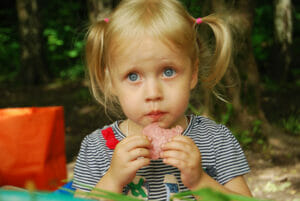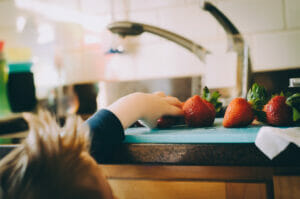![]()
Mum’s taking an hour off to play

Parenting ego states and the power of play
By Clinical Psychologist Lynn Jenkins
As a parent, I often wonder why I behave the way I do sometimes. Like the time I said to my kid, you have a mouth like a cat’s bum, just as my mum used to say to me when I was sulking. It just comes out of my mouth – I can’t help it. I don’t think I’ve even looked closely at a cat’s bum to know what it actually looks like!
What is a parenting ego state
What’s happening here is my Parenting Ego State is operating. Very broadly, Ego States are the result of growing up with the people that we did. They are a collection of beliefs, thinking styles, and behaviours that we absorbed simply through being around them a lot. They live in our subconscious mind, so they are not a conscious choice, but rather an automatic outpouring of, in my case at least, odd sayings, plus opinions, beliefs, and ways of behaving within the various roles we have in life.
Parenting is certainly one of those life roles where the osmosis effects our own parenting surfaces. They show themselves in the way we handle our kids’ emotions, their behaviours, how we discipline, and one very important part of parenting – how we play.
Why play is so important
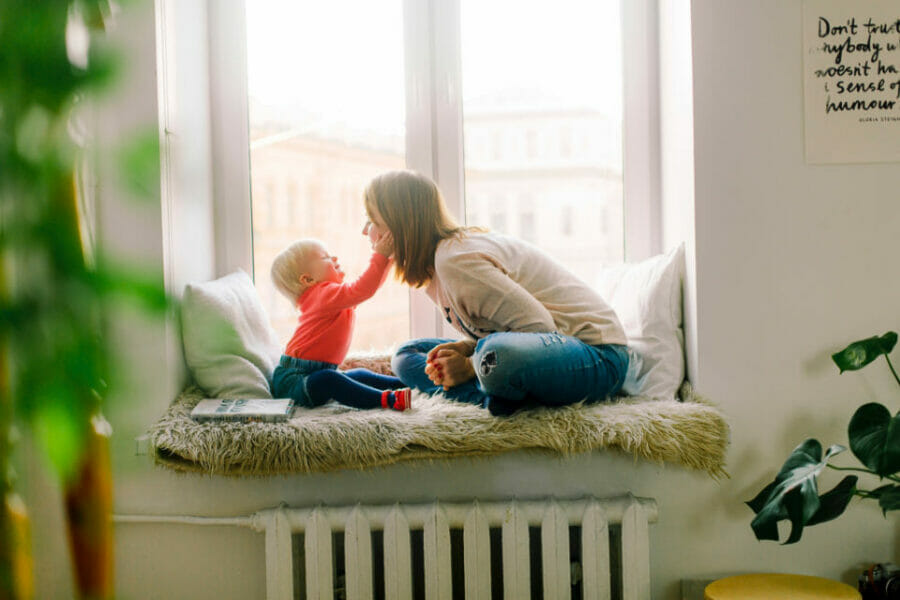
If you’ve read anything of mine previously, I tend to harp on about the importance of children feeling genuine connection with their caretakers. That is, from their perspective they feel this connection, not from ours. Even thinking that kids have a perspective that is all their own is a fairly new concept in the parenting world. Or, perhaps it is more accurate to say that valuing a child’s perspective is fairly new. When we do though, it is easier to understand that a HUGE way kids develop the perception they are genuinely connected with us is through playing with them.
This is not to say that in order for kids to feel a genuine connection with us we have to play with them all the time! Holy Moley – no! It is to say though, that choosing to include play into the parenting regime can lead to a felt sense of connection, and ultimately (and here is the kicker), a calmer, happier child.
One really common barrier to including play into our parenting, is that our parents may not have placed playing or playfulness in the top parenting necessities. If our parents weren’t playful, then playfulness won’t be a big part of our parenting ego state (aka, the way we automatically operate as a parent). So, if it makes sense to be more playful with our kids (and this is not natural to us), then we have to choose to be.
Parent and Child Speak
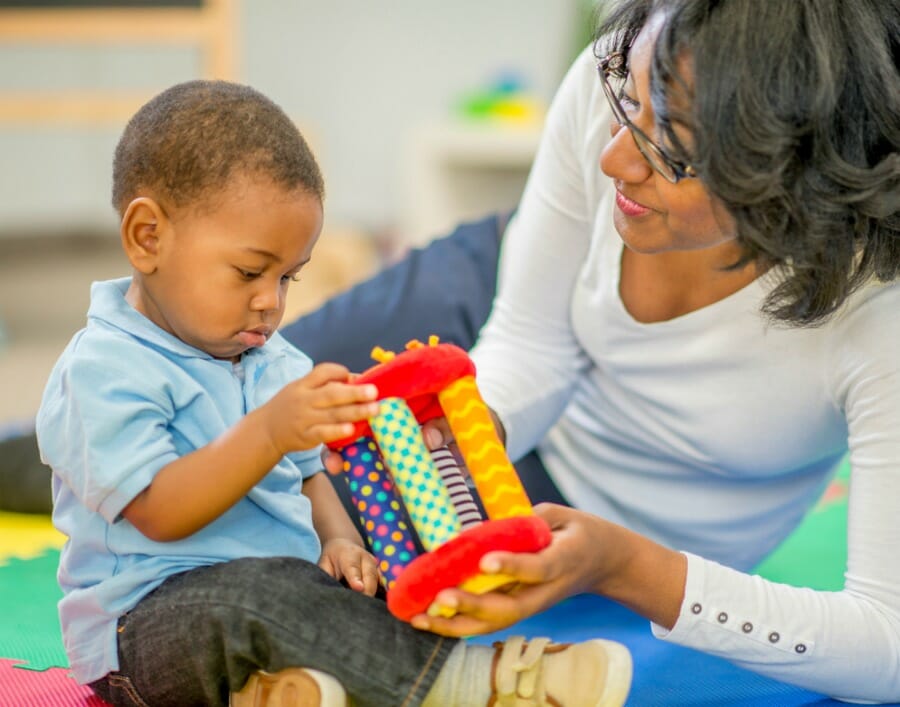
Children need to be guided and taught about life. So, while you might be hard on yourself about it sometimes, I believe it’s absolutely crucial to say all the common mum statements (said in various volumes and tone depending on the time of day, day of the week, the time of the month, how much coffee is in the system, how much wine… you get the idea).
Statements like: Don’t do this! Do this! Hurry up! Put your shoes on! Clean your teeth! Turn off the telly!
Think of this as Parent to Child Speak.
Child to Child Speak
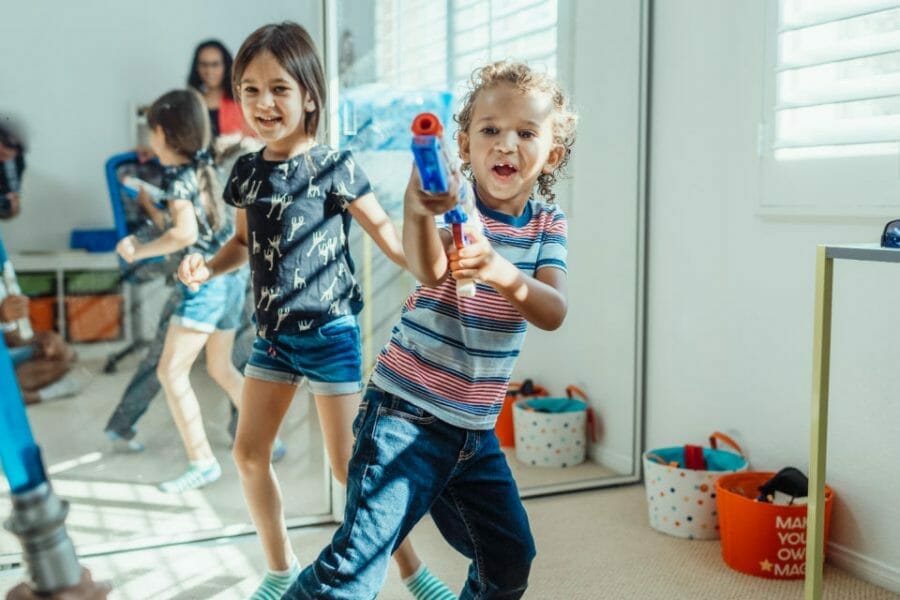
To think of this in another way, you could consider a mentor parent teaching a mentee child. A parent teaching their child to look after their hygiene, being on time, putting in boundaries, etc.
Think about you now. If you had a mentor that only gave you commands, even if in a nice way some of the time, how would you feel? Especially, in terms of feeling closely connected with them? You would probably feel fine, sort of just ok I assume. However, in a work relationship, it is not necessarily beneficial to have a deep-felt sense of connection with our mentor.
In a parent-child relationship however, that deep connection is paramount in the early stages. So, you might decide in parenting, as well as guidance, to include some helpful things like: giggling, lying on the floor playing lego, being silly while your child laughs at you, talking in a funny voice, snuggling on the lounge watching a movie together, dressing up. These aren’t necessary mum activities BUT they are what our children want from us.
Think of this as Child to Child Speak
We are choosing to operate from our Child Ego State which, hopefully and helpfully would be somewhat automatic, if we had playful experiences from our caretakers.
Play as a skill
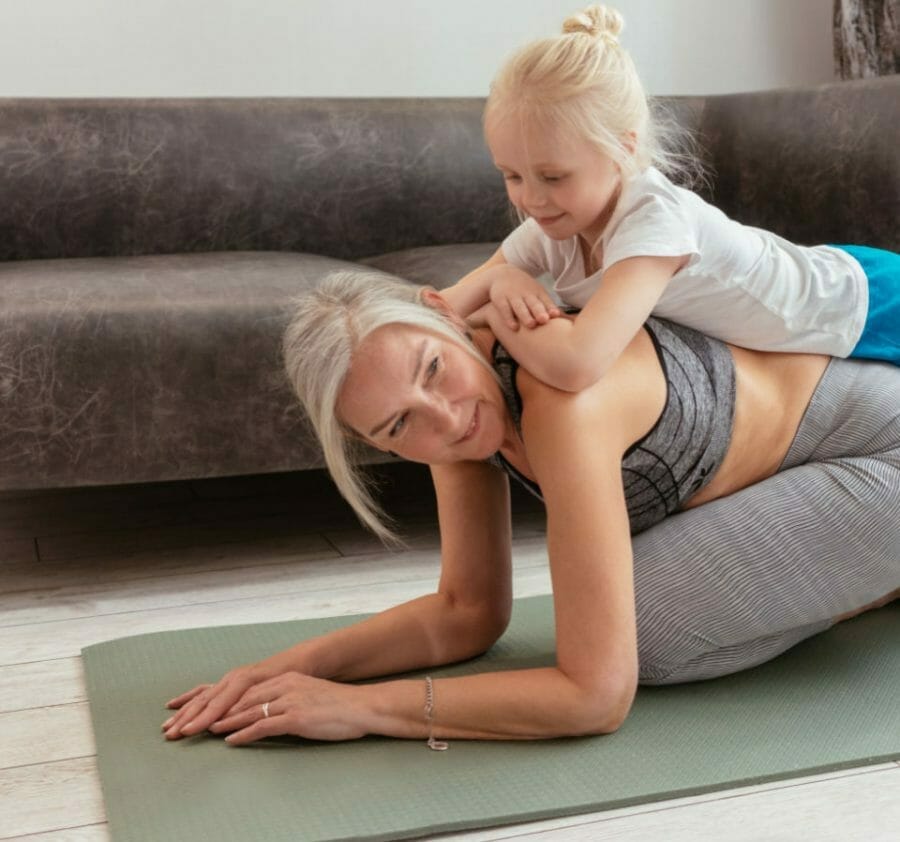
For some, play was integrated deeply into the formative fabric of our lives and for other’s it was not. If we were raised in a household or environment of a more serious nature, then being playful is a skill we might need to practice and that’s A-ok.
I speak to parents all the time and tell them – it’s your turn to have fun, to be silly, to let go of what you’ve held onto for so long. Do it for you, and for your child and watch what happens. There can be a reluctance, but this is because you haven’t practiced it. You might feel like you are being judged. BUT PLEASE REMEMBER: YOUR ONLY AUDIENCE IS YOUR CHILD AND THEY WANT YOU TO BE AS SILLY AS POSSIBLE.
A mindset that may help while you are operating outside of your comfort zone is this: This is for my child. I would do anything for my child, so I can certainly do this!
This skill of play takes practice.
Think of things like: At a time when you’re usually in full parent to child mode (e.g., getting ready for school), walk wherever your child is with a pair of undies on your head or hold a random dance party in the middle of a chaotic time. Or, hold a ‘pool party’ in the bath one night. All pretty simple huh!? But have you done it lately?
Generally, anything that is considered silly and funny from the child’s point of view will give you free insights into how you can be more playful.
Mixing the two
Mixing in some Child to Child Speak to our Parent to Child Speak creates a lovely recipe for parent/child connection, what I always call, the ‘Auto Bahn of highways to a sense of genuine connection’, and therefore, to a sense of safety and in turn to calm land and finally – an easier time for us as parents.
So, there are two main points to remind yourself.
- Being playful with your kid is actually allowed in parenting
- Blow a raspberry now and then. What does it feel like? Normal? Weird?
Whatever the case, your opinion isn’t the most important one (sorry!).
If your kids find it funny, you are on the correct path to connection. Playfulness is like speaking a native language – choose the language your child understands the most and makes them feel the most comfortable. Experiment lots too.
Just try to be a little playful with your kids and see what happens!
For a Printable Roadmap towards Playful Parenting – Check out these 10 Ways to have Super-Fun with your Kids!
The Healthy Mummy Wellness App – Practical Wellbeing For Your Daily Life
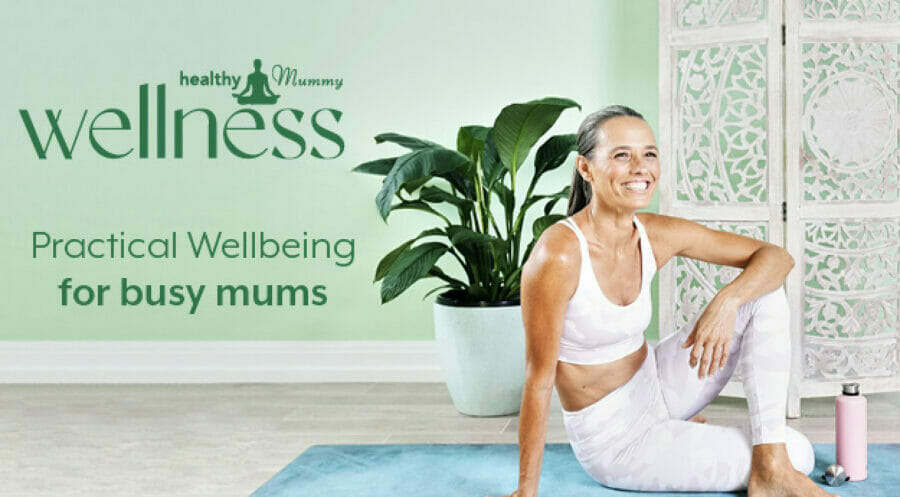
The Healthy Mummy Wellness app is built to support mums’ mental, physical and social wellbeing. We have expert advice to help mums makeover their minds, transform their mood, manage their hormones, sleep better and engage with their family. You can listen to podcasts, read blogs, work out with our trainers and find healthy, family-friendly recipes from the palm of your hand.
Get the Healthy Mummy Wellness App here

